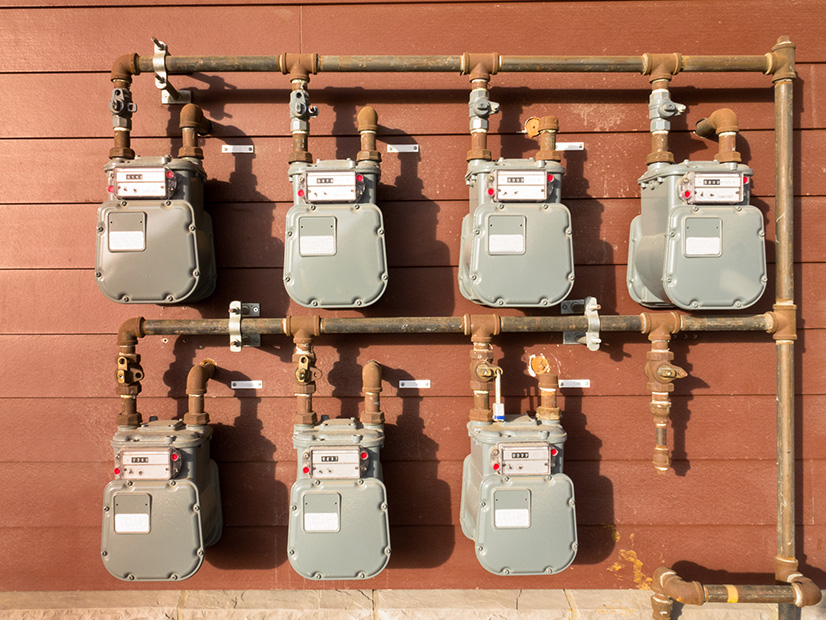
How quickly should Washington’s natural gas companies come up with plans to trim their contributions to greenhouse gases?
Should these gas companies have their first plans ready to go by Jan. 1, 2024? Or should the state legislature wait until 2024 to begin discussing how to tell gas companies how to set up these GHG plans?
A clash over the issue played out Friday at a public hearing on a bill (HB 1766) to put plans on the faster track. Requested by Gov. Jay Inslee, the bill introduced by Rep. Alex Ramel (D) is currently in the House’s Environment and Energy Committee.
Ramel’s bill would require the Washington Utilities and Transportation Commission (WUTC) to set carbon emissions reductions targets for the gas companies through 2050. Beginning in 2024, each gas company would be required to file a Clean Heat Transition (CHT) reduction plan with the WUTC every four years.
The bill also calls for some limits on the ability of gas companies to provide new gas service and to install new equipment to meet energy conservation targets. It would allow gas companies to provide green hydrogen to customers.
The CHT plans would be designed to ensure a gas company meets the carbon reduction goals, limits the expansion of natural gas systems to residential and commercial buildings, encourages the use of high-efficiency electric equipment and the use of clean fuels, and provides financial help to low-income customers.
The plans would also look at economic, public health and environmental considerations within a gas utility’s service area, identify environmental justice issues, examine the use of hydrogen and look at geothermal heat and industrial waste heat.
A 2008 state law called for a gradual phasing out of carbon emissions in Washington. In 2018, the state’s carbon emissions totaled 99.57 metric million tons (MMT). The 2008 law set emissions goals at 55% of 1990 levels (50 MMT) by 2030, 30% (27 MMT) by 2040, and 5% (5 MMT) by 2050.
“We cannot meet those goals without addressing fossil fuels, and we don’t have a plan at this point,” Ramel said at Friday’s hearing.
Ramel argued that lawmakers should not delay taking action until the WUTC completes a study (Docket 210553) on “decarbonization impacts and pathways” for the state’s gas and electric utilities, due to be released in mid-2023. “Planning is urgent and way overdue,” he said.
“This planning is critical to meet our statutory emissions limits,” said Anna Lising, Inslee’s senior climate adviser.
However, gas utilities — along with construction and labor interests — opposed the bill, saying the state should wait until the WUTC study is completed before the issue is discussed.
“It’s a little upsetting that the results of the UTC study will be presupposed,” said Dan Kirschner, executive director of the Northwest Gas Association.
“Combating climate change should not be an at-all-costs proposition,” Neil Hartman, government affairs director at the Washington State Association of the United Association of Plumbers and Pipefitters, said.
Ramel said the decades-long process will be slow and complicated. “The transition has to phase in while we’re phasing out. … I share the goal of being methodical and not pushing for radical transformation,” he said.
Opponents argued that natural gas provides vast amounts of heat for homes and buildings not reached by electric heat. They added that removing natural gas and installing electric heating on a large scale will dramatically increase the prices of homes in the Pacific Northwest where housing is already expensive.
Matt Miller, a project manager for Puget Sound Energy, said that during cold nights in the Seattle area, natural gas provides more than half the utility’s heat to customers. “Natural gas is often the only heat source available for certain industrial areas,” said Peter Godlewski, government relations director at the Association of Washington Business.
Billy Wallace, political and legislative director at Washington and Northern Idaho District Council of Laborers, said the bill would cost Washington 99,000 jobs. Ramel asked Wallace to provide the data and assumptions for that claim.
Overall, 646 people signed up at the hearing in favor of the bill while 384 opposed it. Those people did not testify Friday.


